steven howard sets out his case -- essentially in full, in eight pages -- against dick cheney. . .
i seem to be one of the very
few bloggers following, or ever
even mentioning this matter -- so,
as a public service, and to complete
the freely-searchable record, here, i
will now reproduce the entire-text of
mr. howard's latest motion to depose the
dick (i've only redacted internal foot-
notes, and internal references to other
court-filed exhibits, for clarity, in this case).
this was filed only yesterday -- and it
very comprehensively, yet succinctly,
sets forth howard's case against the vice
president -- for false arrest, and
restraint of his constitutionally-guaran-
teed rights of free political speech, and
expression. this may well serve as
an apt reminder of what an unchecked
unitary executive theory will inexorably,
inevitably engender (or, put more plainly,
"absolute power corrupts -- absolutely").
in any event, here it is:
IN THE UNITED STATES
DISTRICT COURT
FOR THE DISTRICT
OF COLORADO
Civil Action
No. 06-cv-01964-WYD-CBS
STEVEN HOWARDS,
Plaintiff,
v.
VIRGIL D. “GUS” REICHLE, JR., et al.,
Defendants~~~~~~~~~~~~~~~
PLAINTIFF’S REPLY REGARDING
THE OPPOSITION TO THE RENEWED
MOTION FOR UNITED STATES
MARSHALS TO SERVE SUBPOENA
~~~~~~~~~~~~~~~~~
PLAINTIFF, Steven Howards, by and through counsel David A. Lane and Althea S. Licht of Killmer, Lane & Newman, LLP, respectfully submits his Reply to the Office of the Vice President’s Opposition to Plaintiff’s Renewed Motion for United States Marshals to Serve Subpoena, as follows:I. INTRODUCTION
Pursuant to this Court’s order, Plaintiff Steven Howards has re-filed a motion to depose Vice President Dick Cheney regarding the interaction between Plaintiff and the Vice President giving rise to Plaintiff’s arrest for assault. Since Plaintiff’s original motion was filed, Mr. Howards has complied with the Court’s order to depose additional Secret Service agents. Despite having deposed three additional agents, the deposition of the Vice President remains necessary to this litigation.Plaintiff Steven Howards has set forth three claims for relief: (1) a violation of his Fourth Amendment right to be free from unreasonable seizures, (2) a violation of his Fourth Amendment right to be free from unreasonable searches, and (3) violations of his First Amendment rights of free speech and to petition his government. See, First Am. Compl. The Vice President’s testimony, as the victim of the “crime,” is necessary to the determination of these claims. However, the necessity of the deposition is not premised solely upon the fact that the eye witnesses (of whom there is only a limited number) have provided conflicting stories about the incident, as the OVP would have the Court believe. As Plaintiff has previously established, exceptional circumstances exist in this case by virtue of the fact that some of these witnesses, officers of the United States, are allegedly lying under oath.
II. ARGUMENT
A. The Deposition of the Vice President Remains Necessary to Plaintiff’s Fourth Amendment claims.
Mr. Howards’ Fourth Amendment claims hinge upon whether the arresting agents had probable cause to make the arrest, and the Vice President is in the single best position to aid the Court in making this determination. Notably, only two of the eight agents deposed testified that they had probable cause to arrest Mr. Howards, one of whom -– the actual arresting agent –- did not even witness the encounter with the Vice President. See, Exh. A, Reichle Depo. 9:2-5; Exh. B, Doyle Depo. 68:4-10. The primary arresting officer, Defendant Gus Reichle, despite not observing Mr. Howards approach the Vice President, decided to arrest Mr. Howards because of “his premeditation, Mr. Howards would not talk to me, the fact he’s walking around with a bag in his hand in an unmagged area, and the fact that you’re telling me that he had unsolicited contact, I had probable cause, so I decided to make an arrest and I went after Mr. Howards.” Exh. A, Reichle Depo. 34:15-35:1. Remarkably, the other agents testified that probable cause did not exist to arrest Mr. Howards. See, Exh. C, Daniels Depo. 47:3-10 (“I personally did not have probable cause”); 48:4-5 (“[p]robable cause did not exist to make an arrest”); Exh. D, McLaughlin Depo. 69:12-18; 87:3-6 (affirming that probable cause did not exist to arrest Mr. Howards); Exh. E, Lee Depo., 20:3-4 (stating that he did not believe that an assault had taken place); Exh. F, Wurst Depo. 11:15-18; 18:13-19:2; 22:19-23:6 (stating that he did not see a crime – neither assault nor any other crime – committed in his presence). The two other agents that have been deposed did not see the interaction between Mr. Howards and the Vice President at all. Exh. G, Mischloney Depo. 8:1-5; 14:21-22; Exh. H, Rosales Depo. 8:11-16.
Indeed, the probable cause determination does not rest upon whether the Vice President personally felt he was slapped. However, this case does not simply involve the differing testimonies of eye witnesses, as can be expected in any litigation. This is the exceptional case in which some of the Secret Service agents alleged that other agents were lying under oath. Defendant Reichle testified that Defendant McLaughlin changed his testimony regarding what he saw between Mr. Howards and the Vice President. Exh. A, Reichle Depo. 47:22-48:13. Defendant McLaughlin then testified that he was told by Defendant Reichle to change his story about what he had observed. Exh. D, McLaughlin Depo. 134:13-135:17. Thus, with the victim of the crime having yet to testify, the parties are left with the testimony of five agents, at least one of whom has been accused of changing his story. Whether other agents also altered their stories remains uncertain.
Certainly, a more reliable record must be developed in order for Mr. Howards’ Fourth Amendment claims to be properly adjudicated. Beck v. Ohio, 379 U.S. 89, 93 (1964) (finding that the poorly developed record precluded the Court from finding that the arrest was made within the confines of the Fourth Amendment).
B. The Deposition of the Vice President is Necessary to Plaintiff’s First Amendment Claim
Plaintiff’s Third Claim for relief involves Defendants’ acts “of intimidating, threatening, searching, and falsely arresting Mr. Howards” because of Mr. Howards’ exercise of constitutionally protected conduct. First Am. Compl. ¶¶ 31-36. In the April 15, 2008 Order, this Court briefly addressed Plaintiff’s First Amendment claim in the context of deposing the Vice President. Relying solely on Defendant Reichle’s testimony -- that he did not discuss the incident with the Vice President -- the Court stated that “it is difficult to see how a deposition of the Vice President would be relevant to Plaintiff’s third claim for relief.” Order, p.17 However, Defendant Reichle, was not in the vicinity of Mr. Howards when he approached the Vice President and did not hear what was said. In fact, seven of the eight Secret Service agents who have been deposed did not hear what Mr. Howards said to the Vice President. Exh. I, Daniels Statement, p. 2 (stating that Mr. Howards’ statements were inaudible from where he was standing); Exh. J, McLaughlin Statement, p. 2 (stating that, from across the street, he could not hear what Mr. Howards said); Exh. B, Doyle Depo. 49:9-50:6 (“I saw Mr. Howards make a statement. I don't know what statement he made to the Vice President.”); Exh. F, Wurst Depo., 10:14-18 (stating only that Mr. Howards said “something” to the Vice President); Exh. G, Mischloney Depo. 19:22- 20:7 (stating that he solely relied on what other agents had told him, not what he had seen or heard himself); Exh. H, Rosales Depo. 8:11-16 (confirming that he did not hear (or observe) the interaction).
The only witnesses who testified to hearing Mr. Howards’ statement were Agent Lee, OVP aide Charles Durkin, and White House photographer David Bohrer. See, Exh. E, Lee Depo. 16:21-17:4 (stating that Mr. Howards said something along the lines of “You guys messed up Iraq”); Exh. K, Durkin Depo.18:14-19:4 (stating only that Mr. Howards made a statement “regarding Iraq policy”); Ex. L, Bohrer Depo., 10:6-15 (testifying that he heard “someone yelling about the Vice President’s Iraq policy”).
Whether Mr. Howards was arrested in violation of his First Amendment rights depends on the precise words that he spoke to the Vice President, and only the Vice President himself can verify what was said. Given the severity of Mr. Howards’ treatment and the significance of the potential constitutional violation at stake, a determination of what exactly transpired is critical to this case.
C. It is Within This Court’s Discretion to Allow the Deposition to Proceed
It is within the trial court’s discretion to allow a deposition of a high-ranking official to proceed so long as the party seeking the deposition has shown that the official has first-hand knowledge of the claims being litigated and the information cannot be obtained from any other source. Bogan v. City of Boston, 489 F.3d 417, 423-424 (1st Cir. 2007); Fed.R.Civ.P. 26(b)(1) (“For good cause the court may order discovery of any matter relevant to the subject matter involved in the action”). To be sure, the limitations in deposing a senior government official are not absolute. Id. at 423. Indeed, the Vice President, no less than the President himself, is “scarcely immune from judicial process.” Halperin v. Kissinger, 606 F.2d 1192, 1211 (D.C.Cir.1979); Clinton v. Jones, 520 U.S. 681, 703 (“it is also settled that the President is subject to judicial process in appropriate circumstances”).
The Vice President’s position alone, therefore, will not insulate him from litigation, particularly when the constitutional rights of a citizen are denied at his expense.
Moreover, the trial court has the discretion to manage the deposition so as not to overly interfere with the official’s busy schedule. See, Jones, 520 U.S. at 702 (“if properly managed by the District Court, it appears to us highly unlikely to occupy any substantial amount of petitioner’s time”). Thus, the Court may properly address the OVP’s concerns regarding the Vice President’s time constraints by limiting the deposition to a time period shorter than that allowed by Federal Rule of Civil Procedure 30 (d)(2). The OVP’s argument that the “preparation and the to-and-fro involved with any deposition” will take more than an hour’s time is wholly unavailing. In light of the fact that the Vice President will be asked questions related to an incident that lasted mere seconds, it is hard to imagine that any lengthy “preparation” time is required of him. Moreover, undersigned counsel has stated that he will travel to a location convenient for the Vice President in order to avoid the “to-and-fro” of a deposition that the OVP protests.
Additionally, although the OVP poses an argument grounded in the separation of powers doctrine, “[t]he litigation of questions that relate entirely to the unofficial conduct of the individual who happens to be the President [or, in this case, the Vice President] poses no perceptible risk of misallocation of either judicial power or executive power.” Jones, 520 U.S. at 701. While certainly this Court must adhere to the moving party’s burden in order to require the Vice President’s deposition, constitutional principles do not “require” the court to protect the Vice President from a deposition if warranted.
Here, there is no protective order in place preventing the deposition to go forward, and it is within this Court’s discretion to order discovery from the Vice President.
WHEREFORE, Plaintiff respectfully requests that the deposition of the Vice President proceed.
Respectfully submitted this 3rd day of September 2008.KILLMER, LANE & NEWMAN, LLP


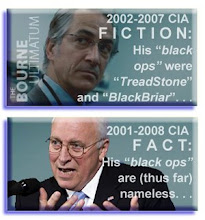
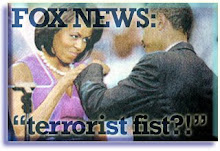


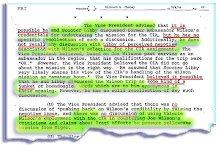
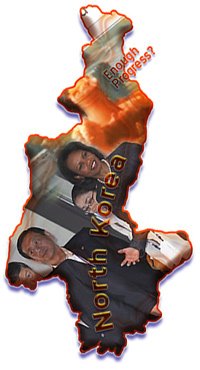

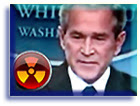
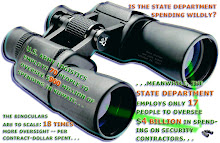




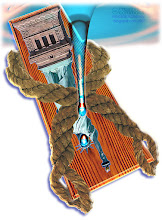
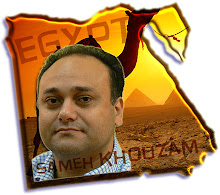

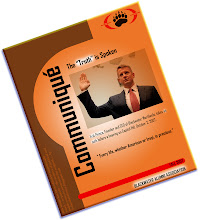




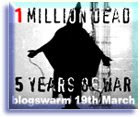



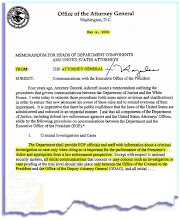

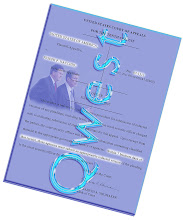
































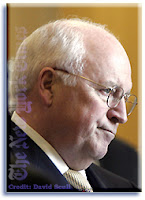





No comments:
Post a Comment